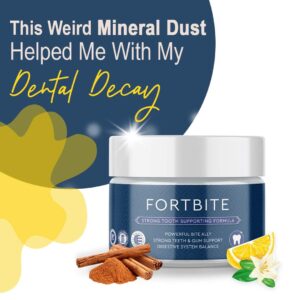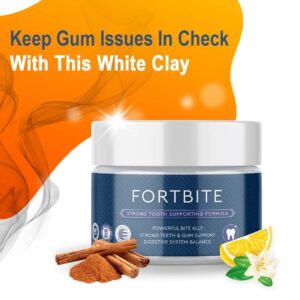Why do teeth turn yellow despite regular cleaning?
For a variety of causes, teeth can turn yellow or stained even when brushed often. Here are a few typical reasons:
Age: As we become older, the enamel on our teeth naturally ages and becomes more yellow and discolored.
Genetics: Genetics or hereditary factors may make some persons more likely to have yellow teeth.
Diet: Some meals and beverages, including coffee, tea, wine, and sweet or acidic foods, can discolor teeth and stain them.
Smoking or using tobacco: Smoking or using tobacco products can darken teeth and stain them.
Even though you clean your teeth frequently, poor oral hygiene can sometimes result in yellow teeth. Discoloration and staining can be caused by the accumulation of plaque and tartar.
Consult your dentist or dental hygienist if you are bothered by your yellow or discolored teeth. They can assist in identifying the root reason and suggest remedies or methods to aid in enhancing the look of your teeth, such as expert teeth whitening, dental cleanings, or dietary adjustments.

How can I naturally whiten my yellow teeth?
There are a number of organic treatments that could help whiten stained teeth. Here are some recommendations:
Baking soda: To make a paste, combine a tiny amount of baking soda with water. Use the paste to brush your teeth for one to two minutes, then thoroughly rinse. Natural teeth-whitening benefits of baking soda might aid in removing surface stains from teeth.
Using a tablespoon of coconut oil: You should swish it about in your mouth for 15 to 20 minutes before spitting it out and rinsing it out with water. The removal of plaque and bacteria from teeth, which can cause discoloration, may be aided by oil pulling.
Apple cider vinegar: Dilute some apple cider vinegar with water, then swish the resulting solution around in your mouth for a couple of seconds. Use water to thoroughly rinse. Apple cider vinegar has the potential to eliminate oral bacteria and erase stains from teeth.
Fruits and vegetables: Crunchy foods like apples, carrots, and celery can be used to scrub teeth and get rid of surface stains.
It’s crucial to keep in mind that home remedies could not be as successful as professional whitening procedures or dental cleanings, and some of them might even harm teeth if used excessively or in high concentrations. Before using any home remedies to whiten your teeth, it is a good idea to consult your dentist. Additionally, practicing basic dental hygiene habits, such as routine brushing and flossing, can aid in preventing the onset of tooth discoloration and yellowing.
Can teeth that are yellow turn white?
Yes, with the use of numerous dental treatments and procedures, yellow teeth can become white.
Professional teeth whitening procedures can assist to eliminate surface stains and discoloration from teeth, making them seem whiter and brighter. These procedures include in-office bleaching and at-home whitening trays. These procedures employ strong bleaching agents that can penetrate the enamel and disassemble the discoloration-causing compounds.
It’s crucial to remember that the level of whitening that is accomplished will depend on the severity, the origin, and the kind of treatment employed for the discoloration. Certain types of discoloration may be more challenging to treat than others, and some people may have more dramatic outcomes than others.
In order to keep teeth looking their best, it’s also critical to practice basic oral hygiene, which includes routinely brushing and flossing as well as avoiding foods and beverages that might discolor teeth. Talking to your dentist about the best course of action for your particular needs and objectives is also a smart idea.
Lemon: Does it whiten teeth?

Lemon can be used as a natural teeth whitening solution because it contains natural bleaching characteristics. Lemon can whiten teeth, but it’s vital to use caution because it can also harm tooth enamel and increase sensitivity.
Lemon acid can erode tooth enamel, leaving teeth more prone to decay and injury. In addition, the strong acidity of lemon can irritate the tongue and gums, making them sensitive.
If you decide to use lemon to whiten your teeth, it’s crucial to dilute the juice with water and apply it to the teeth for a little length of time—no longer than a minute or two—before completely rinsing with water. After using lemon, it’s a good idea to brush your teeth with toothpaste to help balance the acidity and save the enamel.
Overall, while lemon may have some benefits for teeth whitening, it’s critical to use it carefully and sparingly to prevent harming the teeth and gums. It’s always advisable to discuss the best teeth-whitening solutions with your dentist based on your unique needs and objectives.
Does baking soda teeth whiten?
Yes, baking soda has been shown to be effective at whitening teeth and can assist to get rid of surface stains and discoloration. A moderate abrasive like baking soda can be used to remove stains and plaque off the surface of the teeth.
You can make a paste by combining baking soda with a tiny amount of water and stirring until the mixture has a thick, smooth consistency to use for teeth whitening. Apply the paste to your teeth next, and brush for two minutes, paying special attention to any stains or discolorations. Finally, give your mouth a good water rinse.
It’s crucial to remember that while using baking soda sparingly and carefully can help whiten teeth, it can also be an effective teeth-whitening solution. Too much baking soda use can weaken tooth enamel and increase sensitivity. Your dentist may offer advice on how to use baking soda safely and effectively, so it’s a good idea to discuss the topic with them. In addition, your dentist could suggest different teeth-whitening methods that might be better suited to your needs and objectives.
The best at-home methods for teeth whitening
There are various natural home cures that could aid in teeth whitening. Here are a few illustrations:
Baking soda and hydrogen peroxide: Create a paste by combining a tiny amount of baking soda and hydrogen peroxide. Apply the paste to the teeth and brush them for a few minutes before completely rinsing.
Oil pulling: To help remove bacteria and stains from teeth, swish a tiny bit of coconut oil or sesame oil in your mouth for a few minutes each day.
Apple cider vinegar: To help eliminate stains from teeth, gargle with a tiny amount of diluted apple cider vinegar in water.
Strawberry paste: To assist eliminate surface stains, mash a few strawberries into a paste and apply it to teeth for a short period of time before rinsing.
Activated charcoal: To help eliminate surface stains from teeth, brush with activated charcoal powder mixed with water.
It’s crucial to remember that while these methods may aid in naturally whitening teeth, they could not be as successful as professional teeth whitening procedures. Furthermore, since these treatments have the potential to be abrasive and harm tooth enamel, it’s crucial to exercise caution and refrain from using them excessively. Always consult your dentist before attempting any novel teeth-whitening techniques or products.
Do salt water teeth whiten?

Although salt water isn’t frequently utilized as a teeth-whitening solution, it might have some advantages for oral health. Since salt water is a natural disinfectant, it can aid in killing oral germs that may cause tooth decay and gum disease. Saltwater can also aid to soothe sore gums and lessen swelling.
Even though regular brushing, flossing, and dental cleanings can help keep teeth looking their best, good oral hygiene practices such as these can also assist in indirectly whitening teeth. Avoiding meals and drinks like coffee and tea, which can stain teeth, can also assist to prevent discoloration.
Baking soda, activated charcoal, oil pulling, and other natural remedies are available if you’re seeking a way to whiten your teeth. However, it’s crucial to utilize these treatments with care because, if done incorrectly or too frequently, they can be abrasive and possibly harm tooth enamel. Always consult your dentist before attempting any novel teeth-whitening techniques or products.
How can I make my teeth whiter in three minutes?
Usually, three minutes won’t be enough to noticeably whiten your teeth. To see results, the majority of teeth-whitening treatments need to be used consistently over a few days or weeks. But there are a few things you can do to immediately make your grin more vibrant:
Brush and floss your teeth: Taking good care of your mouth also includes removing surface stains from teeth.
Use whitening toothpaste to brighten your smile. There are many different kinds of whitening toothpaste that can assist to eliminate surface stains from teeth.
Utilize a teeth-whitening pen or whitening strips: These products can be used quickly and easily to eliminate surface stains from teeth. However, it’s crucial to carefully follow the directions and avoid overusing these products because, if used incorrectly, they can be abrasive and possibly harm tooth enamel.
Chew sugar-free gum: Chewing sugar-free gum can assist to increase salivation, which helps to wash away bacteria and other dental debris and enhances oral health in general.
It’s crucial to remember that while these simple solutions could aid in enhancing the appearance of your teeth, they might not deliver the identical amount of outcomes as professional teeth whitening procedures. In addition, it’s wise to see your dentist before utilizing any novel teeth-whitening techniques or solutions.
